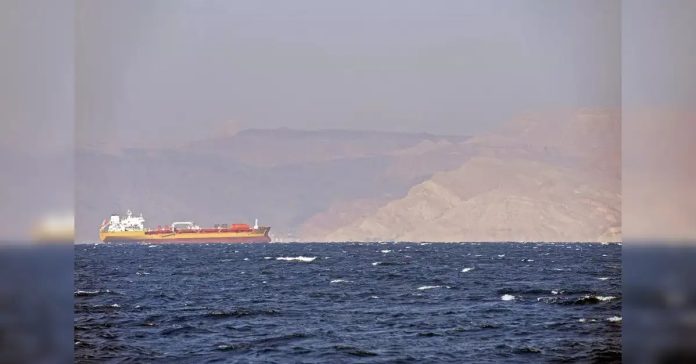Global concerns are intensifying as Iran signals a possible move to block the Strait of Hormuz, a strategic maritime corridor through which nearly 20% of the world’s daily oil supply flows. The threat comes amid an escalating military confrontation between Iran and Israel, prompting fears of a wider regional conflict with profound economic and geopolitical consequences.
Esmail Kousari, a senior member of Iran’s parliamentary security commission, stated on state-run Press TV that Tehran is “seriously reviewing the closure of the Strait of Hormuz.” The statement, echoed by Turkey’s Anadolu Agency, indicates that Iran may once again wield control over this vital passage as a strategic bargaining chip.
The Strait of Hormuz, located between Iran and Oman’s Musandam Peninsula, is a critical artery for global energy supplies—facilitating the transit of more than 17 million barrels of oil and a third of the world’s liquefied natural gas (LNG) every day. Even a brief disruption could send shockwaves through international markets. In response, the U.S. Navy’s Fifth Fleet, based in Bahrain, has already heightened surveillance in the region.
This isn’t the first time Tehran has threatened to close the strait—a move that would also harm its own economy, as Iran depends on the route to export oil, particularly to key customers like China. Analysts caution that any actual blockade could lead to severe domestic and international repercussions for Iran, including unrest at home and strained relations with Gulf neighbors like Oman and the UAE.
Also Read: Israel airstrike hits Iran TV station, Anchor’s boldness praised for resuming news reading
For India, the stakes are particularly high. Nearly 70% of its crude oil and 40% of its LNG imports pass through the Strait of Hormuz. Qatar alone supplies India with almost 10 million tonnes of LNG annually. A blockade would severely disrupt India’s energy security and complicate its diplomatic efforts in the region, already challenged by delays in key initiatives like the Chah Bahar Port and the India-Middle East-Europe Corridor (IMEC).
With seven of the eight islands in the strait under Iranian control and several naval bases in the vicinity, Iran holds considerable strategic leverage. However, experts warn that any attempt to shut the waterway would likely trigger international condemnation and potential military retaliation, reinforcing the strait’s status as both a global energy lifeline and a geopolitical hotspot.




